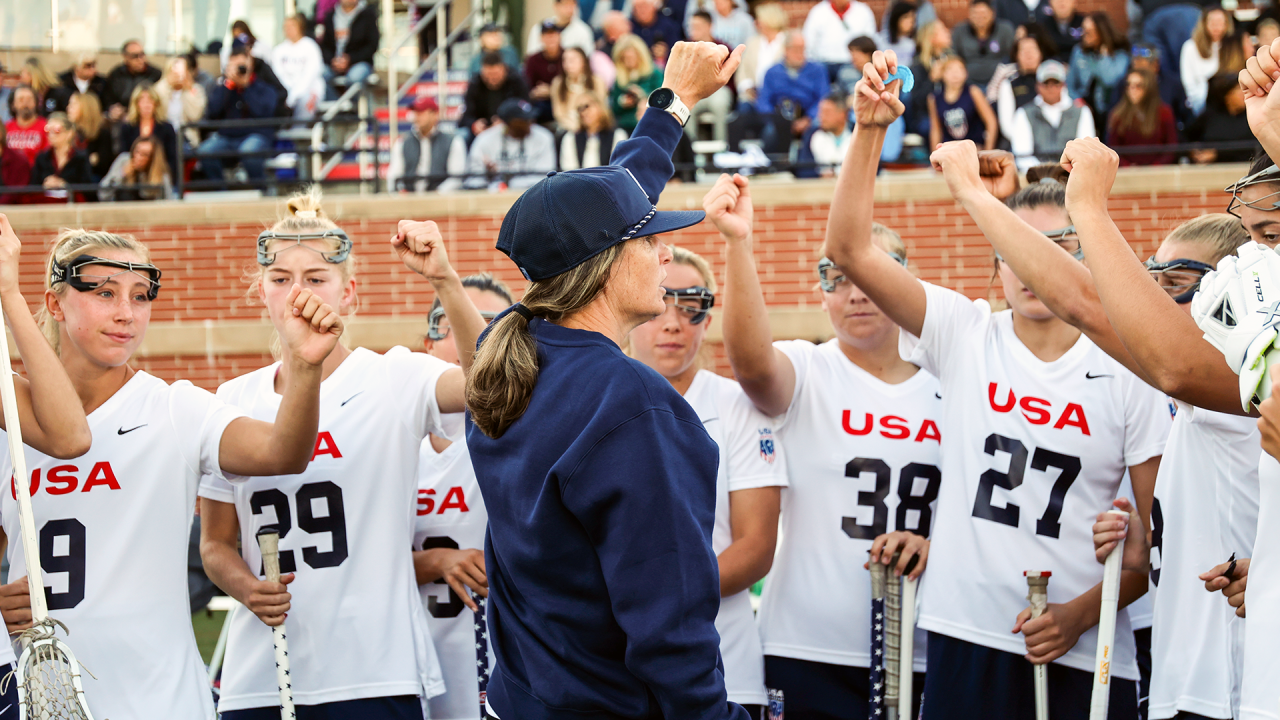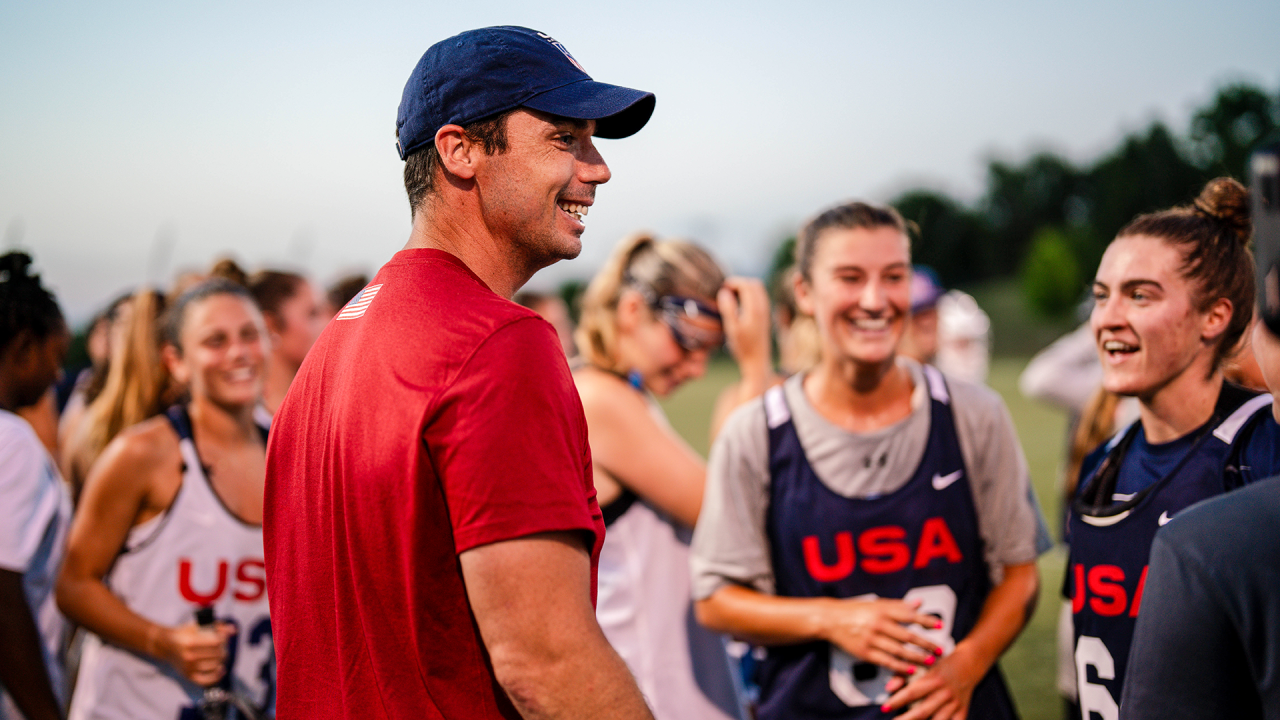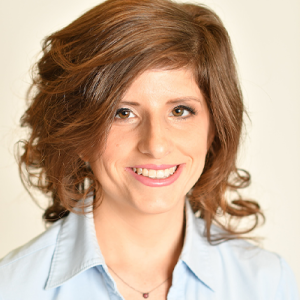
Kelly Amonte Hiller’s U20 Coaching Staff a Reflection of Her Legacy
In lacrosse circles, discussion of Kelly Amonte Hiller’s legacy often begins with the fact that she became the first coach to guide a program outside of the Eastern time zone to a national title when Northwestern won in 2005.
No Division I women’s coach has done it since — well, except for Amonte Hiller, who did so seven more times (most recently in 2023).
The truth is that Amonte Hiller’s legacy started long before then and was built on outside-the-box thinking, belief and bucking tradition. It will continue long after she hangs up the whistle, primarily because of the generations of women she’s inspired, many of whom became successful coaches in their own right.
Some of them will be on the sidelines with her when she leads the U.S. Women’s U20 National Team to the World Lacrosse Women’s U20 Championship this month in Hong Kong, China.
A first-place finish in Hong Kong would add to her rather crowded trophy case, which includes a gold medal she earned after leading the 2019 U19 squad to a world title. It would also mark another chapter in a storied career that spans youth, collegiate and international levels as a player and coach.
The trajectory started on Memorial Day weekend at the USA Lacrosse National Tournament. That’s where Cindy Timchal, the current Navy and former Maryland coach, first saw Amonte Hiller.
It’s poetic, in hindsight. Hiller would play in three world championships with the U.S. Women’s National Team, earning All-World honors in 2005. And only Timchal could stake the same kind of claim to Memorial Day weekend as Amonte Hiller. Both have won eight NCAA championships as coaches.
A highly coveted recruit from Hingham, Massachusetss, Amonte Hiller won two as a player under Timchal in 1995 and 1996.
“Kelly was playing with New England at the time,” Timchal said. “It was always dominated by the Philadelphia and Maryland teams. When [New England] won that, everybody had eyes on several of the players, one of which was Kelly Amonte.”
Amonte Hiller chose Maryland, where the roots of one of the most prolific coaching trees in women’s sports are firmly in College Park’s grounds. Timchal’s coaching tree is the stuff of sports lore — Maryland’s Cathy Reese, Boston College’s Acacia Walker-Weinstein, Loyola’s Jen Adams and Virginia’s Sonia LaMonica, to name a few. Many are champions.
Only one, however, has a trophy case as crowded as the game’s grand dame. No one could predict Amonte Hiller’s success as a coach, but Timchal isn’t exactly surprised by the Hall of Fame career she’s seen unfold twofold.
“As a player, she was committed to the game of lacrosse and loved it,” Timchal said, whose own coaching career started at Northwestern in the 1980s. “I believe that's why she continues to have success. It’s why the genius will continue.”
That genius isn’t just counted in trophies and medals. Amonte Hiller hasn’t only followed in Timchal’s colossal footsteps with national championships. Her branch on Timchal’s coaching tree is so heavy you could argue she deserves her own tree — or perhaps forest.
“Success breeds success,” Timchal said. “When you're good and successful, people] are like, ‘Well, you were so good. You must have this magic formula. I want you to coach here and be my assistant.’”
It takes a great to develop a great. Of course, many great players have become unsuccessful coaches in collegiate and professional sports. Amonte Hiller isn’t one of them.
One of her first mentees is one she and Timchal share — Acacia Walker-Weinstein, whose Boston College team Amonte Hiller and Northwestern have squared off against for the last two national titles. Walker-Weinstein played for Timchal at Maryland and coached under Amonte Hiller at Northwestern. Together, they won three national crowns from 2006-08.
“With Kelly, I learned the business side of things,” Walker-Weinstein said. “I learned and watched up close with her how you can still win with no resources if you have the right mindset and people.”
She connects people. She unites people. She grows the game.
Ann Elliott Whidden
Mindset is a common theme in stories Amonte Hiller’s former players and assistants tell of their mentor. But to get those players, Amonte Hiller had to lean into the other critical component of her success Walker-Weinstein mentioned: winning without resources. That included taking a no-stone-left-unturned approach to recruiting.
Northwestern didn’t have the same brand-name appeal as Maryland, Princeton and Virginia, the three programs that won titles before Northwestern when on its tear of five straight NCAA championships from 2005-09.
It had been nearly a decade since the Wildcats even competed in a Division I game when Angela McMahon, now a manager for the U20 team, got her first glimpse of Amonte Hiller. She was playing high school lacrosse for Weston, about a 45-minute drive from Hiller’s alma mater, Thayer Academy.
McMahon’s coach invited Amonte Hiller, who was hired to resurrect the Northwestern program in 2002 after it was a budget cut casualty 10 years earlier, to a practice.
“I was just like, ‘What is this?’” McMahon said. “She's teaching behind-the-back passes. She's teaching all these cool, next-level skills that are now a norm in our game. But back then, they weren't. Immediately, I was super intrigued and excited to learn.”
McMahon had already committed to UMass, where she’d later serve as head coach. She was born and bred in New England and focused on schools in the area, especially as it took shape as a lacrosse power pioneered largely by Amonte Hiller.
Yet, she couldn’t shake the idea of joining Amonte Hiller in the central time zone. So she transferred to Northwestern as a sophomore, serving as a foundational leader and two-time captain for the Wildcats until she graduated in 2004.
“I was the only person who had ever played in a college lacrosse game,” McMahon said.
“We’d go out to the field, and it’s like, ‘OK, we don’t even know how to run a warm-up.’ We’d have to figure out how to warm up for practice. It was mentally stimulating, and I felt like a natural because of my age and experience. I just took it and ran with it.”
Nature was part of it, but so was nurture. Amonte Hiller was a sounding board, a guide and an inspiration.
“Every single day, she was telling you things — sometimes things you didn’t want to hear — and challenging you,” McMahon said. “Everyone was supportive. There was a lot of learning and screwing up, but Kelly reinforced that team mentality. That’s what I craved, getting people on the same page and working toward a common goal.”
As a senior in 2004, McMahon helped Northwestern reach the NCAA quarterfinals for the first time. She was in the stands the next year when the Wildcats won it all. She worked at Reebok but had the coaching itch. Amonte Hiller helped her secure a job as the head coach at Bentley.
“It was a head coaching Division II part-time job that paid $5,000,” McMahon said. “I was like, ‘Sign me up.’”
McMahon was among the first of Amonte Hiller’s prodigies to make that move, even with a Northwestern degree that carries prestige in the white-collar world. And she wasn’t the last — a feat not lost on Johns Hopkins head coach Tim McCormack, who also worked with Amonte Hiller at NU and is one of her assistants with the U20 team.
“Think about the fact that these young women are graduating from one of the best institutions in the world, and they're deciding to go coach,” McCormack said. “It’s unbelievable the tree she has.”
The tree wasn’t “The Tree” when McMahon graduated. Northwestern was only beginning to take root as a national power. Still, something was blossoming, and McMahon picked up on it and used it to break into the Division I level. She went on to coach at UMass under former Northwestern assistant Alexis Venechanos, took the head coaching job at UConn and later returned to the Minutewomen, where she helped them secure 11 Atlantic 10 titles.
Meanwhile, Evanston became Title Town.
Lindsey Munday, the U.S. Women’s Sixes National Team head coach, won NCAA titles in 2005 and 2006 as a player and jointed Amonte Hiller’s staff for three more from 2007-09.
Ann Elliott Whidden, a U.S. U20 assistant, joined her alma mater’s coaching staff in 2009, already a three-time national champion as a player. Like McMahon before her, Whidden, an Ohio native and one of Amonte Hiller’s underrecruited gems, credits the mindset of taking small steps to reach big goals for her success on the field and sidelines.
“I thought, ‘Maryland lacrosse is so great,’ and my teammates were like, ‘No, Northwestern lacrosse is great — and we’re going to win,’” said Whidden, an All-American defender for the Wildcats who spent four seasons as Amonte Hiller’s top assistant before being hired as Colorado’s inaugural head coach in 2012. “There was this mindset shift in how she approached everything and built from the smallest pieces. These were the days when you broke down film on VHS tapes, and we would break down film and spend 45 minutes on stickwork alone.”
Success answers plenty of questions on why a coach would dedicate so many hours to such details. So does coaching alongside the person.
“You see the method behind the madness,” said Munday, who left Northwestern a year earlier than Elliott to start a new program at USC. “As a player, you have a sense of why she’s doing certain things, but when you are a coach, you really understand the whys. You see the work ethic and commitment. She’s one of the hardest workers that I have ever met.”
Former Northwestern players and coaches can be found leading college programs across the U.S. Katrina Dowd — talk about a stickwork — just completed her first year at Brown and previously helmed Oregon. Munday and Whidden helped usher in a short-lived but impactful era of Pac-12 lacrosse that united West Coast programs for annual clashes and natural rivalries.
“I had just an amazing experience at Northwestern as a player and as a coach, and to be part of something from the beginning is special,” Munday said. “I knew how special that was, and not every athlete can say that.”
Munday and Whidden’s athletes can. That pitch — being a pioneer in a non-traditional hotbed — was part of a broad recruiting effort with which both could identify. But practically speaking, the two also had a running start on the logistics of building a program.
“When I came out here to start building, I felt pretty prepared to do that coming from Northwestern and all the different experiences I've had,” Whidden said. “Then, our first day of practice was a disaster. I was like, ‘This is where we're at. We just have to focus on one little thing at a time,’ which Kelly was huge on. We'll get there as long as we're all committed to that.”
Colorado did get there, making three straight NCAA tournament appearances from 2017-19. USC too, with six trips to the dance from 2015-23.
Whidden and Munday aren’t the only Amonte Hiller disciples to go West. Look at the Pac-12 championship register, and every tournament and regular-season champion has a tie to her except Stanford in 2018. The Cardinal won the inaugural tournament title under Amy Bokker but later notched regular season titles in 2021, 2022 and 2024 and tournament trophies in 2021, 2022 and 2024 under former NU assistant and player Danielle Spencer.
Whidden’s Buffs won the first regular-season crown in 2018. Munday’s Trojans won three regular season championships (2019, 2022 and 2023) and two tournament ones (2019 and 2023).
While Arizona State never brought home hardware, the Sun Devils advanced to the tournament title game in 2022 under McCormack, now a Big Ten foe. (As an aside, Hannah Nielsen can say the same at Michigan.)

A Long Beach (N.Y.) native, McCormack had heard about Amonte Hiller on the lacrosse circuit, even as a men’s lacrosse player on Long Island. He played goalie at UMass.
“Kelly was the player in my childhood who seemed to be the one that everybody was looking up to,” McCormack said. “I just remembered her essentially being, in. my time, the Michael Jordan of women's lacrosse.”
Gary Gait is typically called the Michael Jordan of men’s lacrosse — they didn’t call Gait’s acrobatic, airborne shot over the crossbar in 1988 the “Air Gait” for nothing. But Gait went on to be a key player on Timchal’s staff at Maryland. A man coaching the women’s game is more of a rarity in lacrosse than it is in, say, basketball.
Like Timchal, Amonte Hiller has brought men onto her staff, including her husband, Scott, and McCormack. Amonte Hiller quickly made McCormack’s tenure at Northwestern, which lasted from 2012-19, a family affair, attending his wedding and encouraging him to spend time with his young son.
“She sees value in people and family,” McCormack said. “She showed me a sustainable path, and [family time] was encouraged and at the forefront of her communication. She used to have me set up remote clinics and always encouraged me to bring my wife to do something fun. We took her up on those things.”
McCormack can only imagine what it’s like to be a working mother. (Amonte Hiller has two daughters, Harlee and Lew. Harlee Hiller, a rising senior at Loyola Academy in Illinois, has become a household name in wrestling and judo circuits.) Still, he doesn’t doubt that her holistic view — role-modeling what it was like to be a successful coach and parent — helped plant seeds for women still often relied on as “default parents” to believe they could do the same.
That piece of Amonte Hiller hasn’t changed, but she did have to evolve as a tactician with the advent of the shot clock.
“She is not set in her ways,” McCormack said. “It was astonishing watching the best do it. I just figured she had her way, which she considered was the recipe for success, and she stuck to it. In reality, she was always changing, finding the next best thing and having open ears for listening.”
Internationally — and at long last — the world is listening to and watching female athletes. Women’s gymnastics, headlined by the consensus greatest ever to do it, Simone Biles, has taken center stage at the Olympics. Women’s basketball ratings have soared with stars like Caitlin Clark. Lacrosse-wise, Athletes Unlimited is in its fourth season, making it the longest professional opportunity for women. It’s helped to raise the profile of women’s athletics and lacrosse at a collegiate level.
“There’s a start of something very special,” Timchal said. “There’s Lindsey [Munday] and all these incredible, high-level coaches across Division I schools that have defined themselves at top universities with successful sports for women. Lacrosse is right at the top. Lacrosse matters at high levels. Having a shot at winning Big Ten and national championships matters, and it’s backed up with amazing, new support for student-athletes and facilities.”
And more opportunities and a brighter spotlight on the international stage.
“We’re in an amazing time in our sport, where it's growing rapidly across the world and going to be in the Olympics,” McMahon said. “For me, there's just nobody better to have in our leadership role for USA Lacrosse. She connects people. She unites people. She grows the game.”
Lacrosse’s Olympic moment is four years away. But when she heads to Hong Kong with Whidden, McMahon and McCormack, Amonte Hiller will reunite many previous members of the Northwestern contingent on the sidelines. Her evolution and steadfast commitment to a team-first mentality will be on full display.
“Kelly has so much experience coaching the best players throughout her time at Northwestern [and] the U.S. team,” Whidden said. “She understands the system. For her, it’s about the team, the unselfishness and the connectedness. She's challenging them to meet new people, so it’s not just hanging out with your Northwestern friends or BC friends. She’s bringing everyone together and willing to look at different ways to use everyone’s talent.”
At some point, Amonte Hiller will — figuratively speaking – officially pass the torch. It’s a moment she’s been working toward for decades, consciously or not. When it comes, it will be in capable hands that once spent hours practicing stickwork in Evanston.
“It goes far and wide,” Munday said. “The players she coached are now top coaches themselves. Her innovation of the game of lacrosse, introducing new things and the exposure of getting more fans — in every aspect, she’s done an incredible job of pushing the game forward. Her legacy is untouchable.”
Beth Ann Mayer
Beth Ann Mayer is a Long Island-based writer. She joined USA Lacrosse in 2022 after freelancing for Inside Lacrosse for five years. She first began covering the game as a student at Syracuse. When she's not writing, you can find her wrangling her husband, two children and surplus of pets.

Categories
Related Articles




